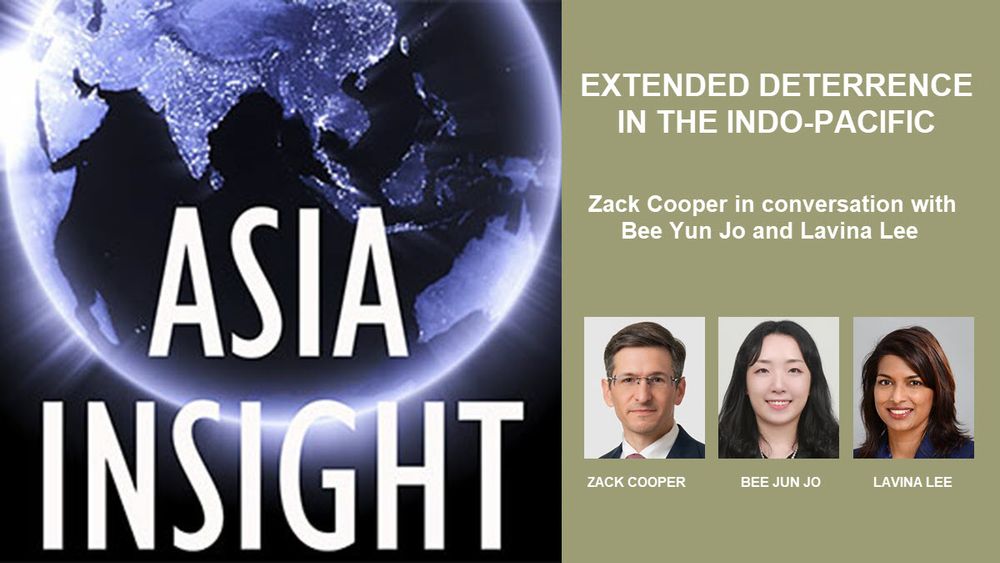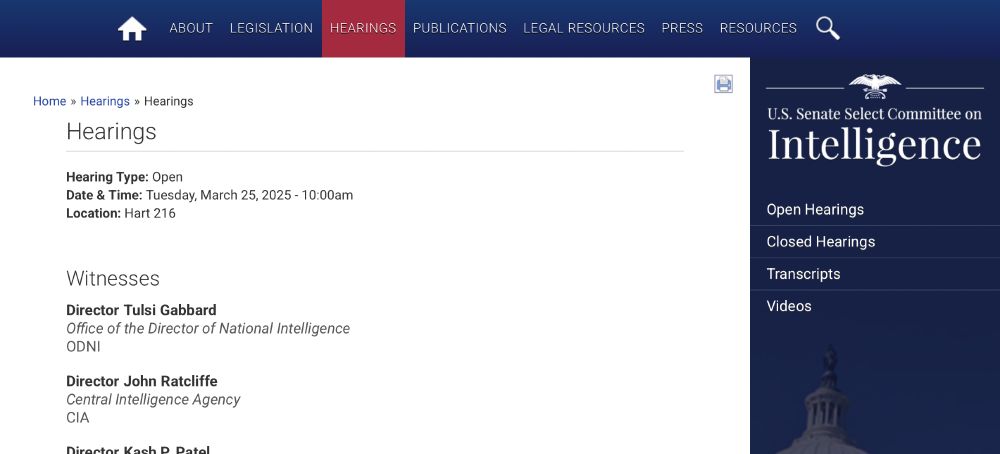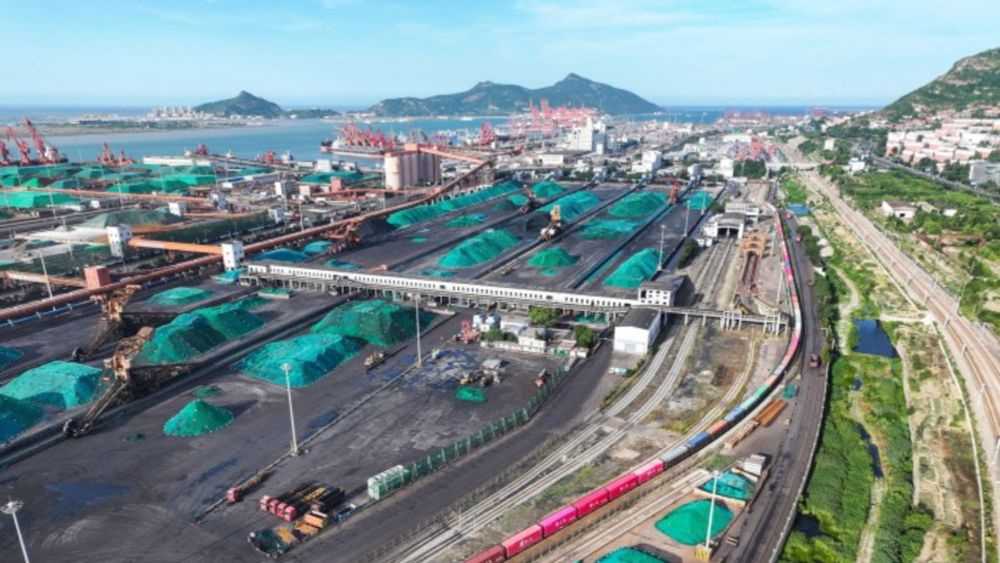This is my (admittedly pessimistic) take on US policy in Asia.
We are distracted, divided, and resource constrained. The question now is not whether the US will pivot to Asia, but how far we might pull back. I fear that simply trying to defend the first island chain is not a feasible strategy.
18.02.2026 18:21 —
👍 20
🔁 6
💬 0
📌 0

Asia After America
How U.S. strategy failed—and ceded the advantage to China.
@zackcooper.bsky.social discusses Washington’s failed pivot to Asia—and considers what a more realistic regional strategy would look like.
17.02.2026 21:30 —
👍 11
🔁 3
💬 2
📌 1
I may have slightly overestimated Maduro’s longevity in power…
06.01.2026 01:08 —
👍 2
🔁 0
💬 2
📌 0

Opinion | America first? Not when Trump is dealing with China.
The president’s second-term China policy started out aggressive. That quickly changed.
"The administration is trying so hard to avoid angering Beijing that it is pulling its foreign policy punches as well," Derek Scissors and @zackcooper.bsky.social write. https://wapo.st/4s7saun
16.12.2025 17:25 —
👍 5
🔁 1
💬 0
📌 0


Welcome to the Trump administration, ladies and gentlemen.
09.12.2025 11:16 —
👍 5
🔁 0
💬 0
📌 0

How War in Taiwan Ends
Even if deterrence fails, America could thwart China.
“Without a plan for terminating a war in Taiwan, Washington would risk repeating the pattern of U.S. strategy in Iraq and Afghanistan that many Trump officials critiqued: winning the first battle but losing the war,” argues @zackcooper.bsky.social.
06.11.2025 17:20 —
👍 9
🔁 4
💬 3
📌 1

The team at ChinaFile asked eight of us to assess the state of play in US-China relations and who has the upper hand in the ongoing negotiations. I think it's pretty clear.
Beijing is showing its capabilities and biding its time. And it's working.
www.chinafile.com/conversation...
30.09.2025 16:00 —
👍 1
🔁 1
💬 0
📌 0
I'm just going to leave this here... 🤔
www.aei.org/foreign-and-...
25.09.2025 19:52 —
👍 7
🔁 3
💬 1
📌 1
In the last year we have gone from:
BEIJING begging WASHINGTON to allow it to buy advanced semiconductors
to...
WASHINGTON begging BEIJING to allow it to sell advanced semiconductors
I give up. 🤦♂️
17.09.2025 20:32 —
👍 4
🔁 0
💬 1
📌 0

ASIA INSIGHT PODCAST: Zack Cooper (@zackcooper.bsky.social), Bee Yun Jo, and Lavina Lee discuss the sustainability of U.S. extended #deterrence and #nuclear restraint in #Australia, #Japan, and #SouthKorea in light of three trends. www.nbr.org/publication/...
12.09.2025 21:40 —
👍 4
🔁 1
💬 0
📌 0

IP25086 | Rethinking the Rebalance
KEY TAKEAWAYS • The United States must overhaul its Indo-Pacific strategy since President Barack Obama’s “rebalance” to Asia has lost momentum. • Persistent shortcomings – insufficient resources, lack...
In short, the time has come to rethink the rebalance.
This world will be more complex and dangerous. But American strategists must accept the world they have created and craft realistic approaches to protect US interests in this evolving region.
rsis.edu.sg/rsis-publica...
11.09.2025 10:54 —
👍 11
🔁 2
💬 0
📌 0
Implication 4: These shifting regional dynamics suggest that nuclear proliferation in Asia is a real and growing risk.
If Washington's position in Asia erodes, how would the United States react if some of its allies and partners were to pursue independent nuclear options?
11.09.2025 10:54 —
👍 10
🔁 3
💬 1
📌 0
Implication 3: As China’s influence in continental Asia grows, the US might embrace an offshore balancing role.
If the United States adopts an maritime balancing strategy, what would this imply for US allies and partners (like Thailand and South Korea) on the Asian continent?
11.09.2025 10:54 —
👍 8
🔁 1
💬 1
📌 0
Implication 2: As Northeast Asian security dominates US engagement, Taiwan will become a litmus test.
But if the US disengages outside Northeast Asia and then stands aside on Taiwan, would this effectively erode what is left of the US position across the entire Asian region?
11.09.2025 10:54 —
👍 10
🔁 1
💬 1
📌 0
Implication 1: As security dominates the economic and governance pillars of US strategy, Northeast Asia is once again dominating Washington’s thinking.
Will US leaders support or oppose Asian powers (especially India and Indonesia) playing bigger roles in their sub-regions?
11.09.2025 10:54 —
👍 9
🔁 1
💬 1
📌 0
What does this mean going forward?
Rather than asking whether these constraints can be reversed, observers should start thinking about how US policy and the Indo-Pacific region will adapt.
I see four basic implications that raise hard questions for American strategists:
11.09.2025 10:54 —
👍 9
🔁 1
💬 1
📌 0
Americans must recognize that these three constraints are not primarily about foreign views of Donald Trump.
They are more fundamental. They are due to shifting US views and foreign perceptions of America.
11.09.2025 10:54 —
👍 10
🔁 1
💬 1
📌 0
Constraint 3: Regional trust in the US has eroded, limiting US options and influence.
Even close allies are reshaping their engagement with Washington to protect their independence in the face of US pressure and unpredictability.
11.09.2025 10:54 —
👍 13
🔁 1
💬 1
📌 0
Constraint 2: Washington will not develop and implement a positive economic agenda towards Asia.
Both parties abandoned the Trans-Pacific Partnership. Now the United States will be sidelined as regional economic integration accelerates.
11.09.2025 10:54 —
👍 10
🔁 1
💬 3
📌 0
Constraint 1: Asia will not receive the resources that Asia experts desire (barring a conflict with China).
This is due to both America's global responsibilities and the American people’s waning appetite for additional overseas spending/engagement.
11.09.2025 10:54 —
👍 13
🔁 1
💬 1
📌 0
This is a fundamental change, but it started before Trump.
Going forward, US strategy in Asia will face three constraints, which will require us to rethink our whole approach to the region.
11.09.2025 10:54 —
👍 16
🔁 1
💬 1
📌 0
Now, the Trump administration appears to be refocusing its attention on security in Northeast Asia, boiling US strategy down to:
Pillars:
✅ Security
❌ Prosperity
❌ Good governance
Sub-regions:
✅ Northeast Asia
❌ Southeast Asia
❌ South Asia
❌ Oceania/Pacific Islands
11.09.2025 10:54 —
👍 21
🔁 2
💬 1
📌 0
But the rebalance stumbled because Washington was:
1) Distracted and failed to devote sufficient resources to Asia
2) Unable to implement a positive regional trade agenda
3) Too often viewed the rest of the region through the lens of competition with China
11.09.2025 10:54 —
👍 24
🔁 3
💬 1
📌 0
When it was announced, the rebalance included 3 pillars across 4 sub-regions:
Pillars:
- Security
- Prosperity
- Good Governance
Sub-Regions:
- Northeast Asia
- Southeast Asia
- South Asia
- Oceania/Pacific Islands
11.09.2025 10:54 —
👍 15
🔁 2
💬 1
📌 0

After 14 years, I think the time has come to acknowledge that the "Rebalance to Asia" has failed.
I've spent the last decade writing and thinking about how to make the rebalance successful, so this is a painful realization.
A thread on my new piece for RSIS...
11.09.2025 10:54 —
👍 80
🔁 22
💬 1
📌 5

Is the "Indo-Pacific" dead? 🪦
Today the Pentagon issued a statement labeling the "Asia-Pacific" the priority theater.
Coming ahead of the National Defense Strategy release and amidst heightened tensions with India, this will definitely raise some eyebrows!
10.09.2025 19:01 —
👍 6
🔁 0
💬 1
📌 0

Armitage's Story | American Experience | PBS
In 1975 Richard Armitage was a special forces advisor in Saigon.
There will be many remembrances, but if you don’t already know what Rich did in the last days of the Vietnam War, then you should watch this.
Wise. Fierce. Courageous. And always a lover of gossip.
He was larger than life. Hard to believe he’s gone.
www.pbs.org/wgbh/america...
14.04.2025 22:09 —
👍 2
🔁 0
💬 1
📌 0

Today was a tough day.
Most mornings the last decade my day started with a phone call from Rich Armitage. But not this morning.
Rich was a friend, a mentor, and a business partner. He was my biggest supporter (and sometimes my toughest critic).
He was a giant. What a life.
14.04.2025 22:09 —
👍 9
🔁 1
💬 2
📌 0

🍿
24.03.2025 22:18 —
👍 47
🔁 14
💬 0
📌 2













